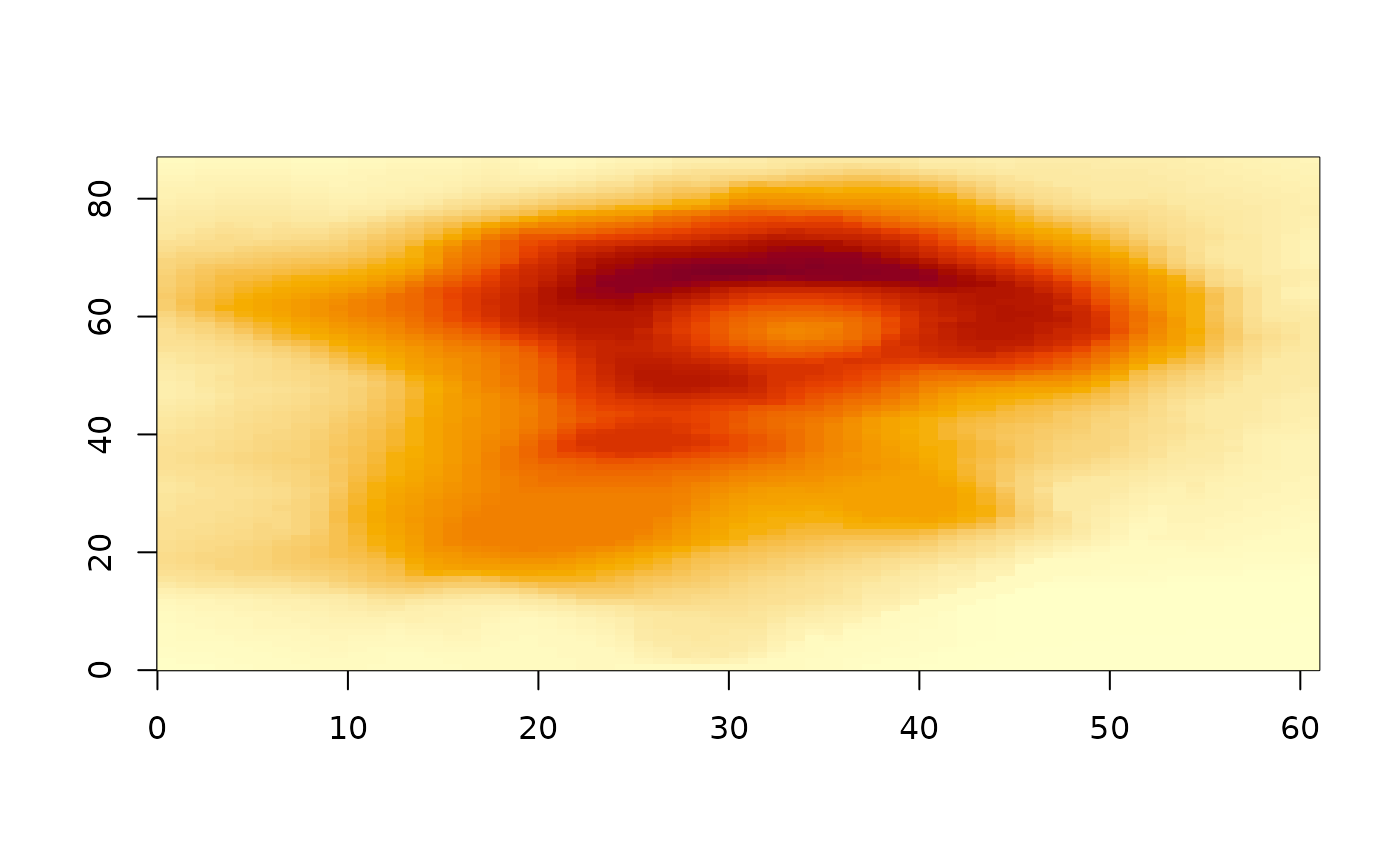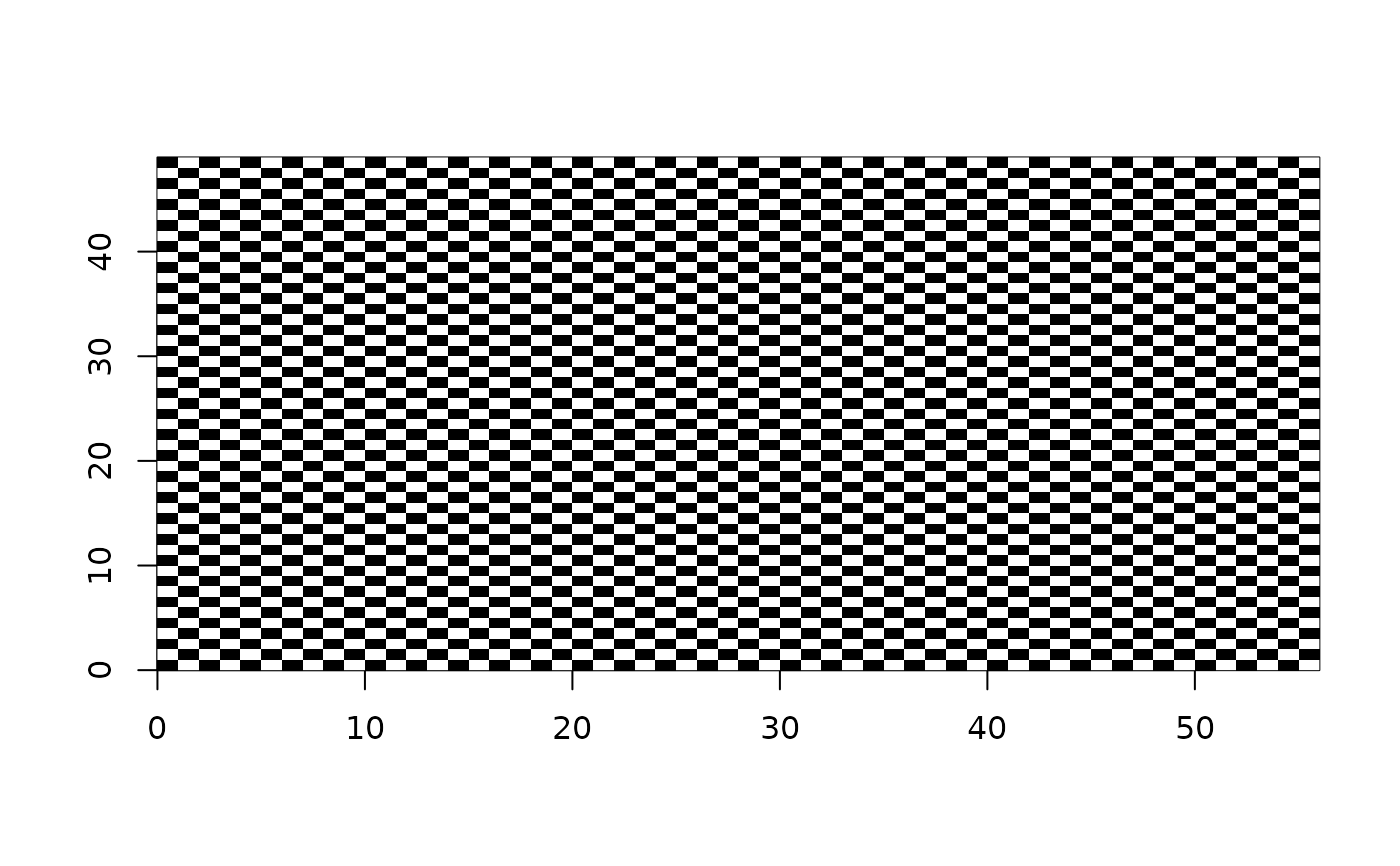A new image() Plot an image (no matter what)
ximage.Rdximage combines the best of image() and rasterImage().
ximage(
x,
extent = NULL,
zlim = NULL,
add = FALSE,
...,
xlab = NULL,
ylab = NULL,
col = hcl.colors(96, "YlOrRd", rev = TRUE),
breaks = NULL
)Arguments
- x
matrix, array, or native raster (nativeRaster, or raster)
- extent
optional, numeric xmin,xmax,ymin,ymax
- zlim
optional, range of data to set colour map (to maintain absolute colours across multiple plots)
- add
add to plot, or start afresh
- ...
passed to plot when
add = FALSE- xlab
x axis label, empty by default
- ylab
y axis lable, empty by default
- col
optional colours to map matrix/array data to
- breaks
a set of finite numeric breakpoints for the colours:
Value
a list with 'x' and 'extent' invisibly (extent is the 0,ncol 0,nrow space of the array if not supplied)
Details
ximage() is designed like graphics function with the following limitations removed,
image() 1:4, rasterImage() 5:7.
Allow arrays with RGB/A.
Allow matrix with character (named colours, or hex) or raw (Byte) values
Allow list output from vapour, a list with numeric values, hex character, or nativeRaster
Plot in 0,ncol 0,nrow by default
Override default with extent (xmin, xmax, ymin, ymax)
Allow general numeric values.
Start a plot from scratch without setting up a plot to paint to.
Plot by default in 0,ncol,0,nrow if unspecified.
ximage uses the GIS raster default used by rasterImage. WIP: There is a similar function 'image0?' that provides the same features but assumes that orientation is like image...
Colours by 'col' are only mapped for numeric data, this may change (to remap RGB or raw imagery via greyscale conversion)

